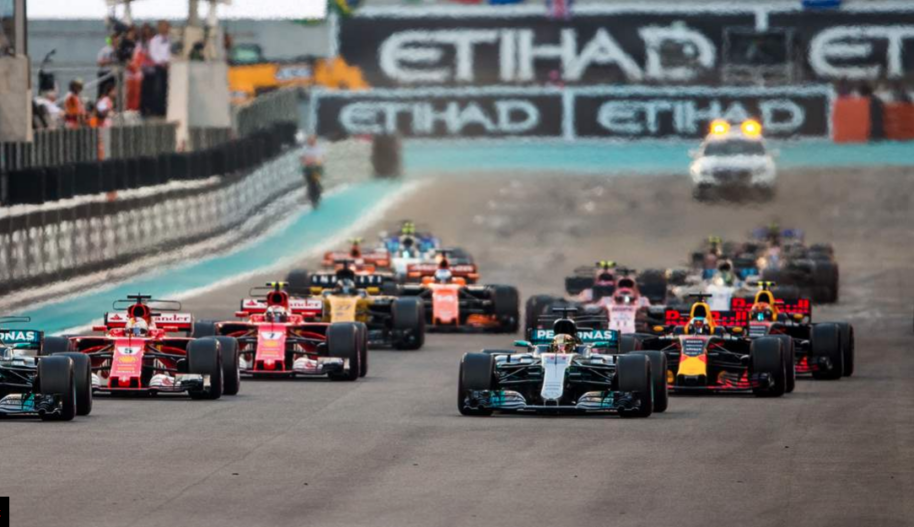Ahead of the Abu Dhabi Formula One Grand-Prix, which is set to take place between 23 and 25 November, the authorities in the United Arab Emirates (UAE) must step up to the modern image they want to project and unconditionally release all those who have been detained solely for peacefully criticizing the government.
“As the world tunes in to watch the final race of the Formula One Grand-Prix season and attend glitzy music concerts, they should know that the UAE authorities have also been racing to silence critics and human rights defenders,” said Samah Hadid, Amnesty International’s Middle East Campaigns Director.
Since 2011, the UAE authorities have embarked on a ruthless crackdown targeting human rights defenders, judges, lawyers, academics, students and journalists, in their efforts to stamp out dissent in the country. Many have been subjected to arbitrary detention, enforced disappearance, torture and unfair trials. As a result, critics and dissidents in the UAE are serving lengthy prison sentences simply for peacefully exercising their right to freedom of expression.
“Today, we call on Formula One Grand-Prix drivers, teams and performers to be the champions of human rights on the circuit and on the entertainment stage. They should be the voice of those who have been silenced and unfairly detained.
“We urge racing teams and performers to call on the UAE authorities to immediately and unconditionally release all prisoners of conscience who have been detained solely for peacefully criticizing the authorities, or for calling for respect for human rights.”
Background
The UAE authorities regularly use criminal defamation, cyber and overly broad anti-terrorism laws to detain, prosecute, convict and imprison government critics and prominent human rights defenders.
Abu Dhabi is also bidding to be crowned the World Capital of Sports in 2019, having qualified for the final stages of the competition. The award is recognized by the European Parliament and the UN, as well as by different European sports agencies.
Amnesty International is campaigning for the release of the following prisoners of conscience in the UAE:
Ahmed Mansoor is a prominent human rights defender who received the prestigious Martin Ennals Award for Human Rights Defenders in 2015. He has documented the human rights situation in the UAE since 2006 and has publicly spoken out publicly in defense of international human rights. Up until his arrest on 20 March 2017, Ahmed Mansoor was the last remaining human rights defender in the UAE who had been able to criticize the authorities publicly. He was tried and convicted on charges including “insulting the status and prestige of the UAE and its symbols” including its leaders, “publish[ing] false information to damage [the] UAE’s reputation abroad” and “portray[ing] the UAE as a lawless land,” and sentenced to 10 years’ imprisonment on 29 May 2018.
Dr Mohammed al-Roken is a prominent human rights lawyer and former president of the UAE’s Jurists Association who was arrested on 17 July 2012. He was sentenced in July 2013 to 10 years’ imprisonment, following the grossly unfair trial of 94 reform advocates, which became known as the “UAE 94” trial.
Many of the UAE 94 defendants have alleged in court that they were tortured or otherwise ill-treated in pre-trial detention, where they were often held incommunicado for months in secret State Security detention facilities.
Osama al-Najjar was arrested on 17 March 2014 and sentenced to three years in prison after sending tweets to the Minister of Interior expressing concern that his father had been ill-treated in prison. He was due for release from al-Razeen Prison in Abu Dhabi in March 2017, having fully served his prison sentence, However the State Security Chamber of the Federal Supreme Court decided to extend his detention at the request of the Public Prosecution on the pretext that he remained a threat and therefore should be detained in the Counseling Center, another area within the prison.
Science teacher Hussain Ali al-Najjar al-Hammadi is Osama al-Najjar’s father. He was arrested on 16 July 2012. He was sentenced to 10 years’ imprisonment in the “UAE 94” trial and to a further 15 months in the trial of 20 Egyptian and 10 UAE nationals.
Dr Nasser bin Ghaith was sentenced to 10 years’ imprisonment on 29 March 2017 by the Federal Appeal Court in Abu Dhabi. He was tried and convicted on charges including “posting false information” about UAE leaders and their policies, based on comments he made on Twitter stating that he had not been given a fair trial in a 2011 case that included Ahmed Mansoor and three other Emiratis known as the “UAE 5” case. Dr Nasser bin Ghaith has also been convicted of “communicating and co-operating with members of the banned al-Islah organization”, in connection with meetings he had with individuals allegedly linked to the organization.













